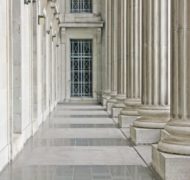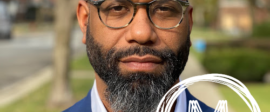Doing Justice (Leviticus 19:15-16)
Bible Commentary / Produced by TOW Project
“You shall not render an unjust judgment; you shall not be partial to the poor or defer to the great: with justice you shall judge your neighbor. You shall not go around as a slanderer among your people, and you shall not profit by the blood of your neighbor: I am the Lord.” (Lev. 19:15-16)
Unleashing Love, Righteousness, and Justice at the Workplace |
This short section upholds the familiar biblical value of justice and then broadens considerably. The first verse begins with an application for judges, but ends with an application for everyone. Do not judge court cases with partiality, and don’t judge your neighbor unfairly. The wording of the Hebrew highlights the temptation to judge the external appearance of a person or issue. Woodenly rendered, Leviticus 19:15 says, “Do not do injustice in judgment. Do not lift up the face of the poor one and do not honor the face of the great one. With rightness you shall judge your neighbor.” Judges must look through their preconceptions (the “face” they perceive) in order to understand the issue impartially. The same is true of our social relationships at work, school, and civic life. In every context, some people are privileged and others oppressed because of social biases of every kind. Imagine the difference Christians could make if we simply waited to make judgments until knowing people and situations in depth. What if we took the time to know the annoying person on our team before complaining behind his or her back? What if we dared to spend time with people outside our comfort zone at school, university, or civic life? What if we sought out newspaper, TV, and media that offer a different perspective from what we are comfortable with? Would digging below the surface give us greater wisdom to do our work well and justly?
The latter part of Leviticus 19:16 reminds us that social bias is no light matter. Literally, the Hebrew says, “Do not stand by the blood of your neighbor.” In the language of the courtroom in the previous verse, biased testimony (“slander”) endangers the life (“blood”) of the accused. In that case, not only would it be wrong to speak biased words, but it would be wrong even to stand idly by without volunteering to testify on behalf of the falsely accused.
Leaders in workplaces must often act in the role of an arbiter. Workers may witness an injustice in the workplace and legitimately question whether or not it is appropriate to get involved. Leviticus claims that proactively standing in favor of the mistreated is an essential element of belonging to God’s holy people.
On a larger level, Leviticus brings its theological vision of holiness to bear on the whole community. The health of the community and the economy we share is at stake. Hans Kung points out the necessary interrelationship of business, politics, and religion:
It should not be forgotten that economic thought and actions, too, are not value-free or value-neutral...Just as the social and ecological responsibility of business cannot simply be foisted onto politicians, so moral and ethical responsibility cannot simply be foisted onto religion…No, ethical action should not be just a private addition to marketing plans, sales strategies, ecological bookkeeping and social balance-sheets, but should form the natural framework for human social action.[1]
Every kind of workplace—home, business, government, academia, medicine, agriculture, and all the rest—have a distinctive role to play. Yet all of them are called to be holy. In Leviticus 19:15-16, holiness begins by seeing others with a depth of insight that gets beneath face value.






